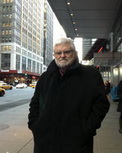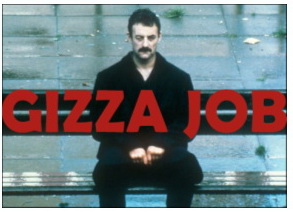 Chris
McDonnell, UK
Chris
McDonnell, UKchristymac733@gmail.com
 Chris
McDonnell, UK
Chris
McDonnell, UK
christymac733@gmail.com
Previous articles by Chris Comments welcome here
Give
us a job!

Change
can be stressful, rapid change even more so. When that stress is apparent
across social groupings, then its consequences can be serious.
This
month fifty years ago, May 68, saw upheaval on a massive scale in
So
where do we stand fifty years on? What have we learnt that can be of use
in managing where we find ourselves now?
In
the intervening years, here in the
According
to national statistics, unemployment is currently at a low level. Yet the
nature of the jobs that are available is cause for concern, with many
being taken on zero-hours contracts and the level of payment not
sufficient to manage a family. The growth of the need for food banks is
evidence of the underlying stress. Capitalism has its consequent
co-lateral damage. Recent reports identify an increase in the number of
children in poverty coming from low-income families requiring help.
As
the years go by our dependence on technology decreases the need for direct
hand skills, with production lines automated to such a degree that
production can be managed by fewer people. And we call it progress. For
sure, the process cannot be reversed so we have to find ways to manage
this changed society that are just and fair.
People
still identify themselves by name, where they live and what they do. It is
that personal pride that is crucially damaged by unemployment, it was that
loss that was poignantly, painfully, demonstrated by Yosser Hughes.
A
friend of mine who lectures in pastoral theology has a small note on the
Notice Board by her office door informing those who call that the ‘Carpenter
from Nazareth seeks joiners’, a job vacancy par excellence! In a
similar vein when she works with groups in parishes her response when
asked her trade is “I work for the
carpenter’s boy”, a succinct definition of a Christian vocation if
ever there was one. Being a Christian is an active role, a job that
demands effort, not just a label for form-filling. It was a significant
title that Dorothy Day gave her
Sometimes
communities of religious are criticised for avoiding the ‘real’ world.
That is to ignore the very core of their vocation, their being deeply
themselves. The American
Cistercian,
Thomas Merton described his vocation as that of
the marginalised.
There’s
a passage from Merton’s Asian Journal that indicates the monastic hope.
‘I
stand among you as one who offers a small message of hope, that first,
there are always people who dare to seek on the margin of society, who are
not dependent on social acceptance, not dependent on social routine, and
prefer a kind of free-floating existence under a state of risk. And among
these people, if they are faithful to their own calling, to their own
vocation, and to their own message from God, communication on the deepest
level is possible. And the deepest level of communication is not
communication, but communion. It is wordless. It is beyond words, and it
is beyond speech and beyond concept’.
The
work of the monk or nun, for it is indeed work demands, as it does for all
of us, good preparation, learning the necessary skills, acquiring
knowledge, patience and understanding suitable for the task. It involves
the transformation of our very being, rarely is it learned exclusively
through books. The apprentice pattern of the learner working alongside the
person of experience is indeed a worthwhile model. That is why our parish
communities should be nurseries, novitiates, of our Christian lives, not
merely replicas of drive-through coffee shops. We learn from being with
others, we gain from their experience.
We need to assist each other in our work for the carpenter’s boy.
END
=====